What to do if white spots appear on pepper leaves?
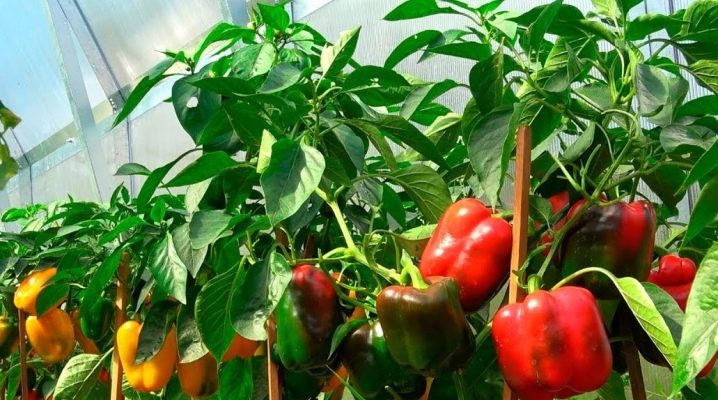
Many gardeners are involved in the cultivation of various varieties of peppers. It is not uncommon to see white spots on such vegetation during growth. Today we'll talk about why this happens and what you can do about it.
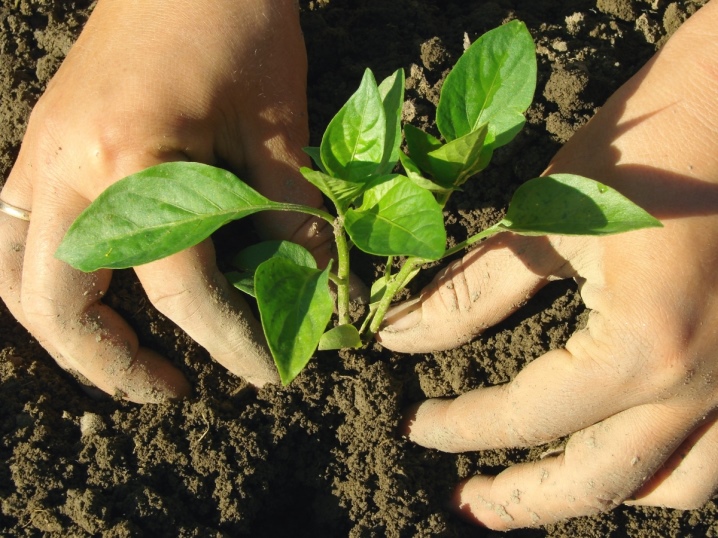
Poor conditions and care
It is not uncommon for these spots to form on plants due to poor growing conditions and improper care.
-
Insufficient lighting... This is the most common cause of white spots. They form on foliage. In order for the pepper to develop normally, daylight hours should last at least 13-14 hours. Often, young crops at the end of winter lack natural light. This can be bad for development.
-
Wrong pick. Shoots should initially be grown in soil, since this culture does not like when the root system is affected. You can use peat tablets, in which case the roots will have their own space for growth, while diving will not cause the appearance of spots.
-
Nutritional deficiency. During the active growth of peppers, the soil begins to be severely depleted. All this can have a bad effect on the condition of plants. It is important to control that there are nutrients in the ground. And also it is necessary to periodically apply feeding substances.
-
Wrong location... Some gardeners plant peppers in areas that are too light. At the same time, it is better for them to select shaded places. Excessive sunlight can also lead to small white spots.
-
Improper watering... It is necessary to constantly monitor soil moisture. Do not allow the top layer to dry out. But remember that excessive moisture can harm the peppers.
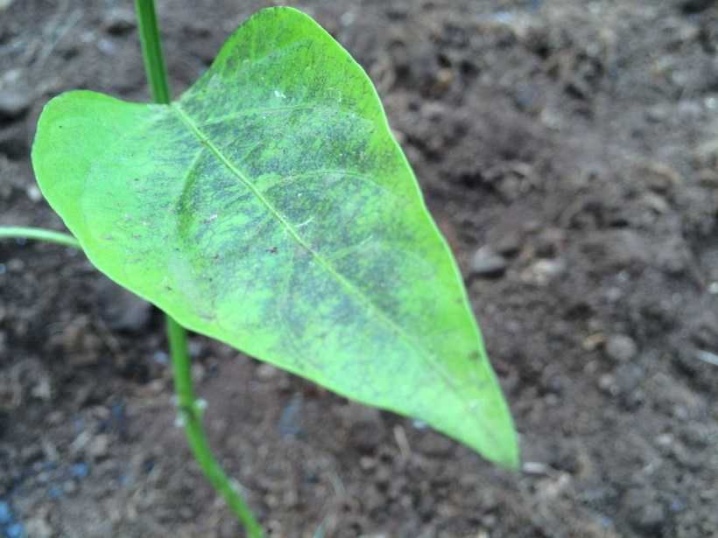
Planting too early can cause white spots on peppers.
After all, this culture is thermophilic, therefore, planting should be carried out only in stable warm weather. If you plant it early, then spots and bumps will begin to form due to the temperature drop.
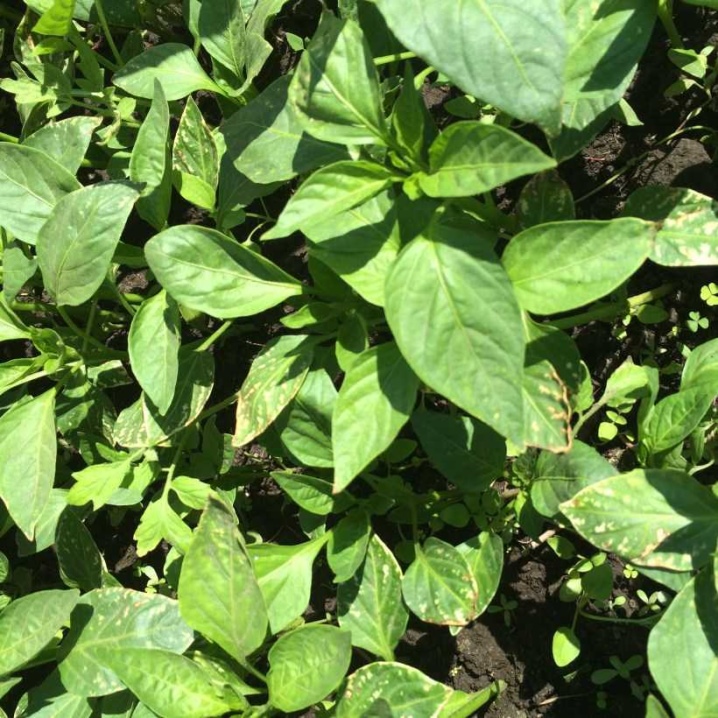
Treatment of diseases
Such damage to the culture can also appear due to various diseases.
Blackleg
This disease develops due to insufficient ventilation if the plant is grown in a greenhouse.... And also it can remain from an old crop and be transmitted through seed material. The lesion starts from the stem. It will gradually darken and eventually die. If you saw the first signs of a black leg, then you need to immediately water the affected plant with a solution of potassium permanganate. And also the peppers are better to thin out.
At the same time, the top layer of the earth should no longer be wet. After all, a humid environment will only contribute to the further development of the disease.
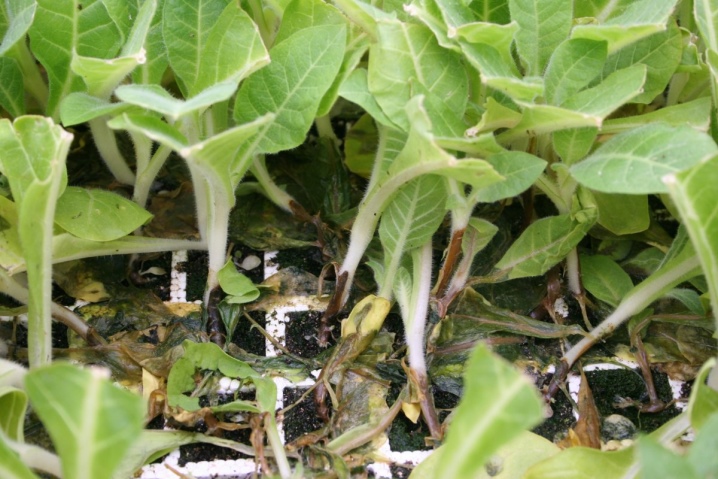
Verticillary wilting
This disease is viral. It is caused by harmful bacteria... In this case, small white tubercles will begin to form on the leaves, the fruits will be small and damaged. There will be no seeds inside them.
It is impossible to cure such a disease, so the diseased vegetation can only be dug up and burned. Otherwise, the disease will spread to other crops.
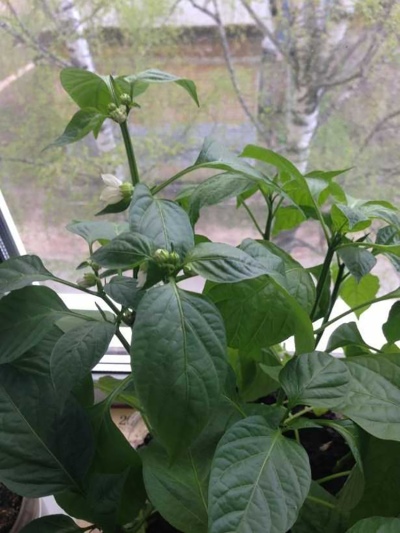
Fusarium wilting
In the early stages, fusarium wilting is almost impossible to recognize.Over time, white spots form on the leaf plates, then they will begin to deform, turn yellow, dry and fall off.
This disease is also not amenable to treatment. The infected bushes are carefully dug up and burned. To prevent damage, you should carefully process the seed material before planting.
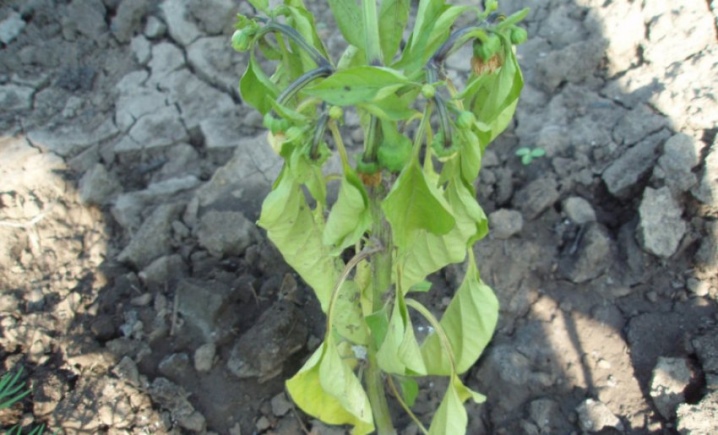
White spot
White spot first affects the root system of the peppers. Only then the leaves begin to turn white. If you do not immediately begin to treat the culture, then the virus will spread to the shoots and fruits.
Most often, the disease occurs due to high humidity and extreme heat. So that it does not appear, it is necessary to remove all fallen leaves from the site in a timely manner, to process the seeds.
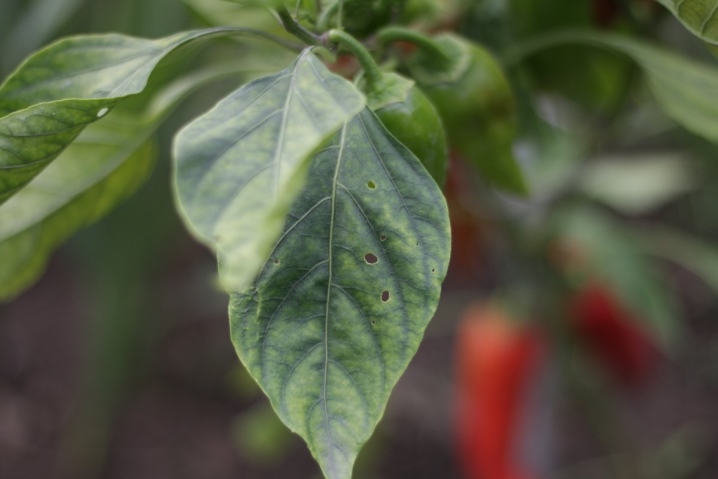
Alternaria
This disease is also viral. It is also called dry spotting in another way. The infection is caused by fungi that rapidly multiply by spores. The main reason for the appearance of such organisms is intense heat. In order to protect seedlings from Alternaria, it is necessary to carry out preventive spraying, for this you can use folk remedies. If the vegetation is already sick, it can only be dug up and burned, because the treatment will be useless.
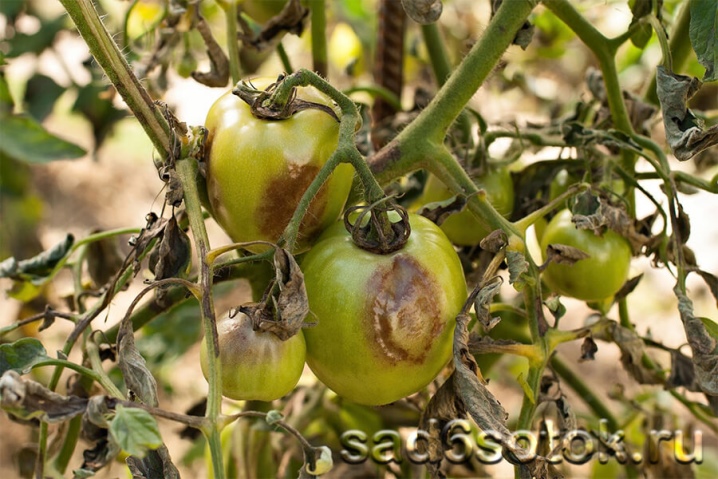
Cladosporium
When damaged, spots of brown or white color will begin to appear on the foliage. This is due to excessive moisture. If you find the first signs of cladosporia, then you need to reduce the amount of watering. After that, it is recommended to cultivate the ground around the peppers.
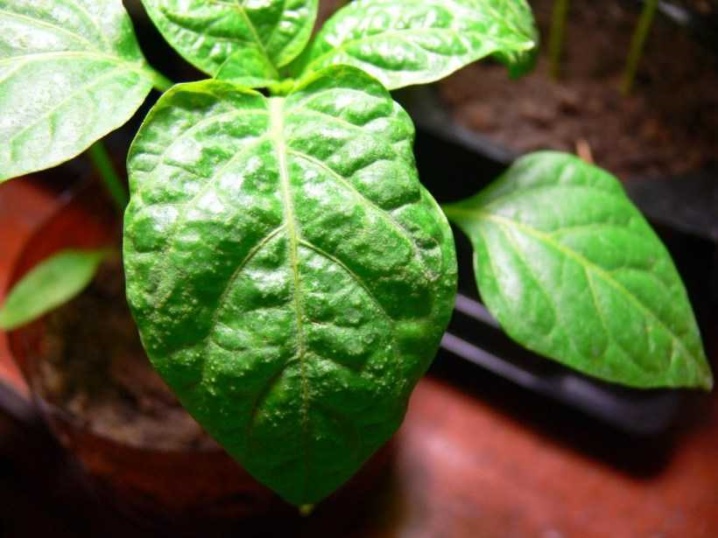
Gray rot
Gray rot appears due to excessive humidity at an air temperature above 20 degrees. In this case, the disease can completely affect all parts of the bush. In the early stages, small spots of white can be observed on the foliage. The rot itself has a grayish tint.
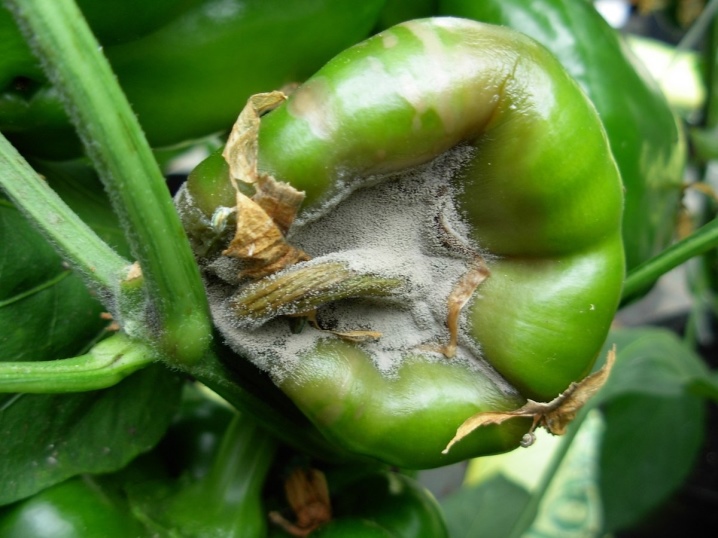
Rot white
In this case, the leaf plates almost completely whiten. The spots can also be seen on the back. White rot is capable of quickly destroying the entire plant... It arises due to high humidity, excessive thickening and acidity of the soil.
To prevent its appearance, thinning should be carried out periodically, and the irrigation regime should be monitored. And you should also be careful with the use of nitrogenous fertilizing.
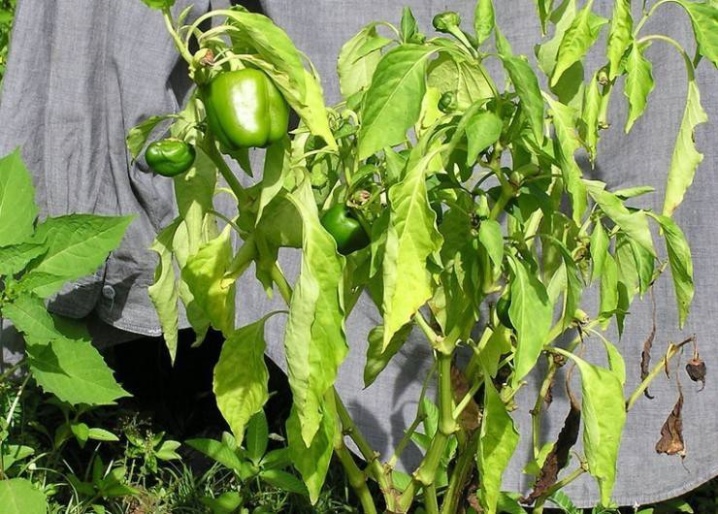
Late blight
The disease may appear due to sudden temperature changes. Most often, it becomes active in the second half of summer. When infected, small spots of white, yellow, brown flowers can be seen on the foliage. Further, the leaves will become very weak, they will begin to wither and fall off, as a result, the bushes will die.
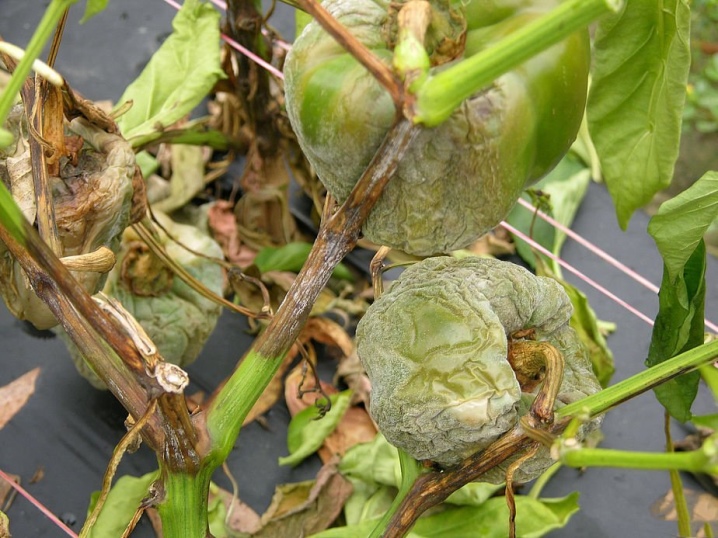
Chlorosis
If peppers are infected with this disease, a white coating may also form on the leaves on the entire surface, including the tips. Most often, chlorosis appears due to a lack of nutrients, due to excessive watering, infections that are carried by various insects. To start treatment, you must first establish the exact cause.
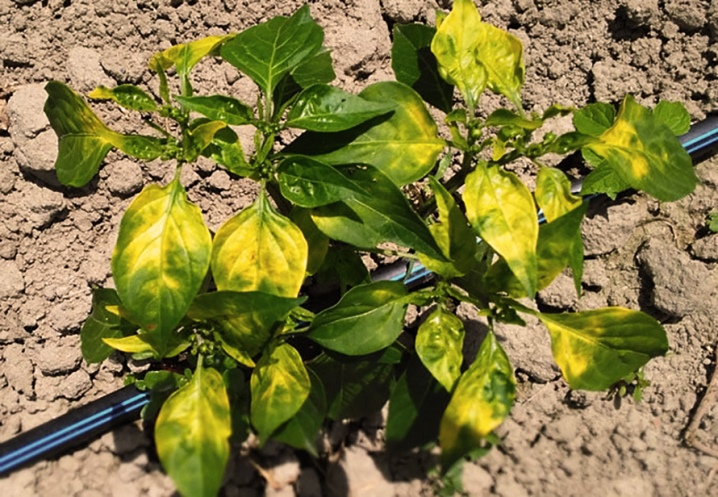
Tobacco mosaic
In case of damage on the surface of the leaves, it will be possible to observe the formation of dots of yellow and white colors. They appear at the edges first. In the future, they will stop evaporating water, become deformed, all this leads to overheating and death. The disease is incurable, it can easily destroy the entire crop at once.
Small white dots and pimples may appear on the leaves of sweet bell peppers due to the action of pests (aphids, spider mites, scale insects). They can form both from the outside and from the inside. In this case, all parasites must be manually collected from the plant, and then treated with chemicals.
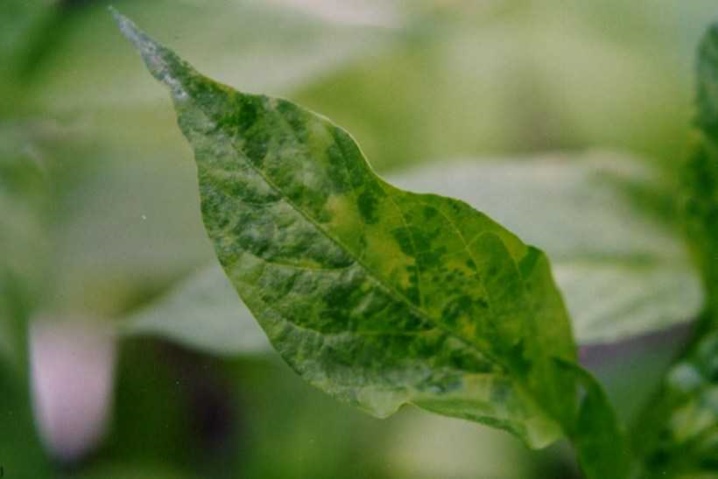
There are a large number of different drugs that can be suitable for the treatment of diseases and the destruction of pests.
-
Bordeaux liquid. This composition will allow you to cope with fungal diseases.To prepare it, you need to mix copper sulfate and quicklime, all this is diluted with water. Before use, the liquid must be filtered through a thin gauze. The prepared composition should have a blue color.
-
Trichodermin. This biological product copes well with fungal diseases. It can be used both in greenhouses and outdoors. To prepare a working composition, you need to mix 1 liter of water with 10 grams of such a substance. The resulting solution is irrigated at the root. If after processing there is a diluted liquid left, it can be sent to storage in the refrigerator. In this form, it can be stored for one month.
-
"Quadris SC". The drug allows you to treat vegetation against fungal diseases. It is diluted in water (there are 300 grams of substance per 5 liters of liquid). Processing is best done either early in the morning or late in the evening. It is impossible to store the ready-made solution; it must be used immediately after preparation.
-
"Alirin-B"... This drug is biological. Before use, it is diluted in water according to the instructions. For 1 sq. m of area accounts for 1 liter of finished composition. The diluted liquid is poured onto the soil, and then all this is carefully dug up. Sometimes it is added directly to the wells during the planting process. There is one such tablet for 1 liter of water. Often, "Alirin-B" is also used for prophylaxis.
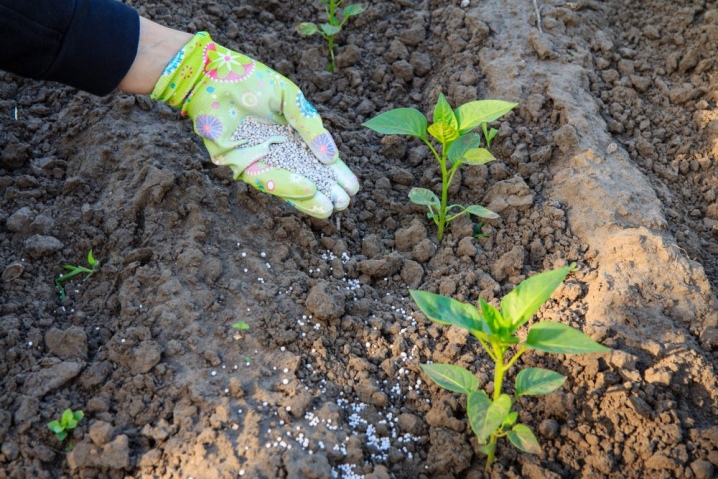
Prevention measures
To prevent the leaves on the peppers from turning white, preventive procedures should be carried out in a timely manner. Do not forget to regularly remove all weeds from the site. It is in it that the causative agents of many diseases are located.
Before planting, the planting material must be carefully processed. It is washed under cold water, kept in disinfectants and completely dried. Only in this form can seeds be planted in the ground. All garden equipment must also be treated with disinfectants. The transplant must be carried out as carefully as possible so as not to damage the material.
In the process of planting, be sure to leave free space between the rows and individual bushes (at least 10 cm). The plantings should not be too dense. Otherwise, the peppers will not receive enough light and feeding, which will also lead to infection.
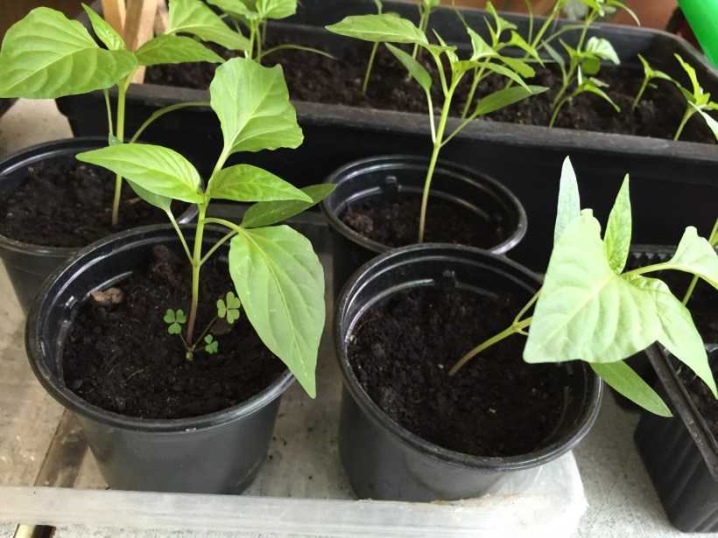
Do not flood the vegetation too much during watering.... Otherwise, due to waterlogging, harmful fungi will begin to develop, which are the causative agents of various diseases.
Regularly fertilize the soil so that each bush can receive the nutrients that are needed for full growth and development. As a preventive measure, you can periodically treat with fungicides. They prevent viral infections on peppers.
To make the culture more resistant to disease, hardening must be carried out. To do this, the seedlings are exposed in open air for a couple of hours. This procedure is carried out several times, increasing the time each time. At the end, it is left for the whole night. Vegetation can only be placed in the shade and not in the sun.
Inspect peppers regularly for damage and pests. If they are found, treatment should be started immediately.
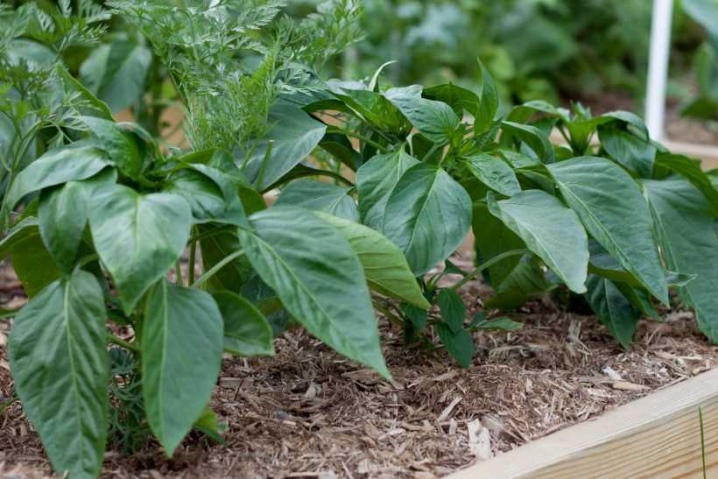








The comment was sent successfully.